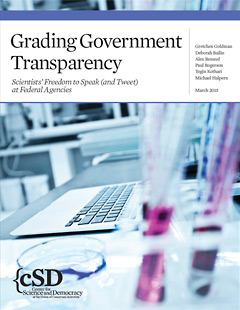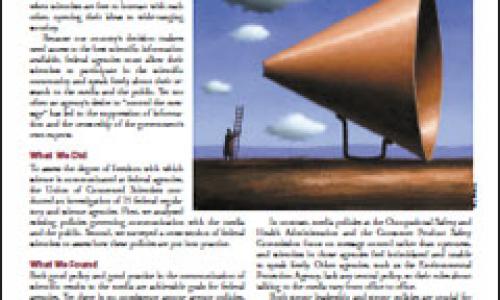Federal scientists play an important role in our democracy by providing critical expertise to decision makers and the American people. To fulfill this responsibility, they must be able to communicate freely with the media, the public, and their peers.
But in many cases, federal scientists have reported that their public communications are censored, constrained, or funneled through agency media offices.





